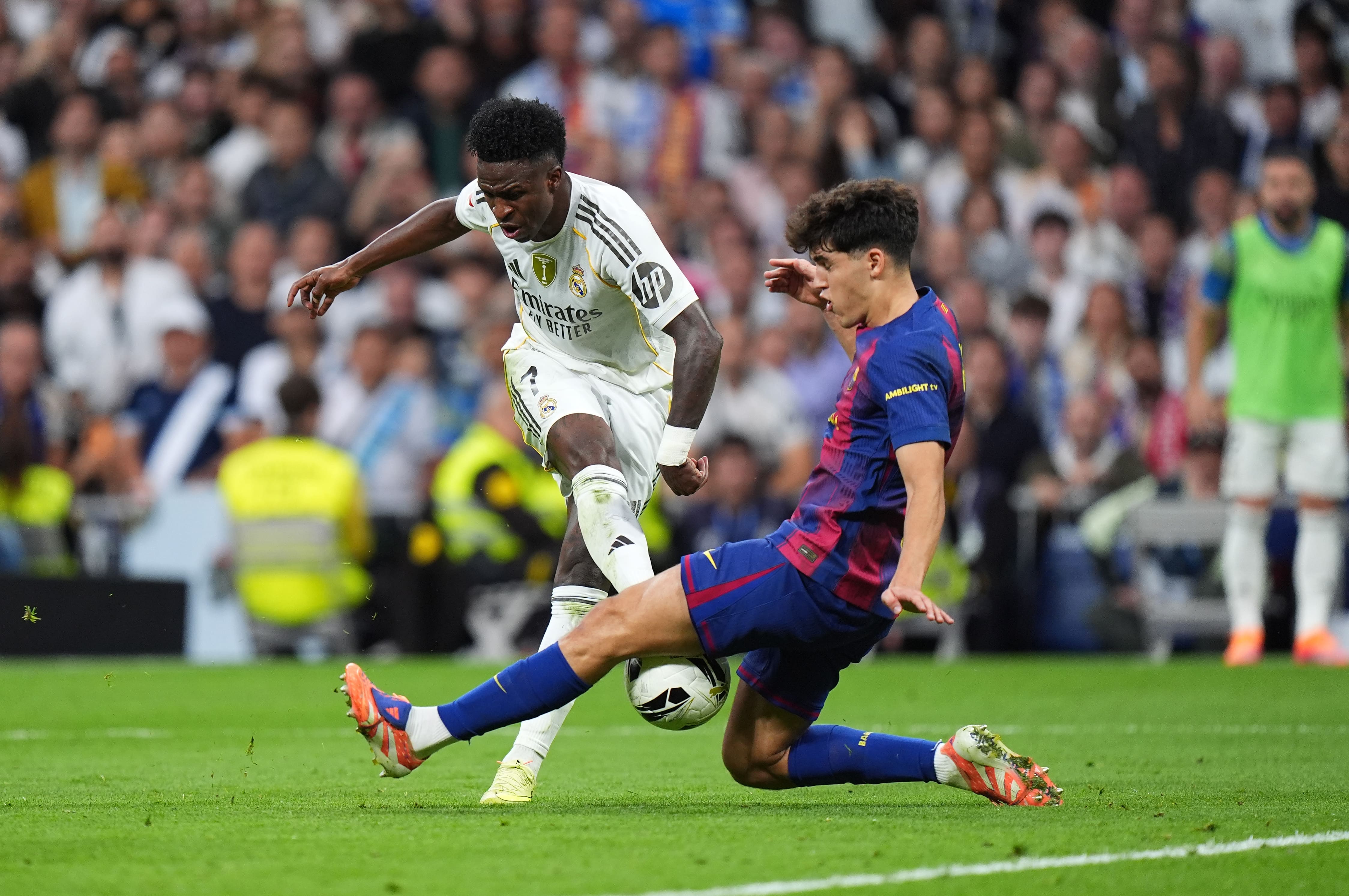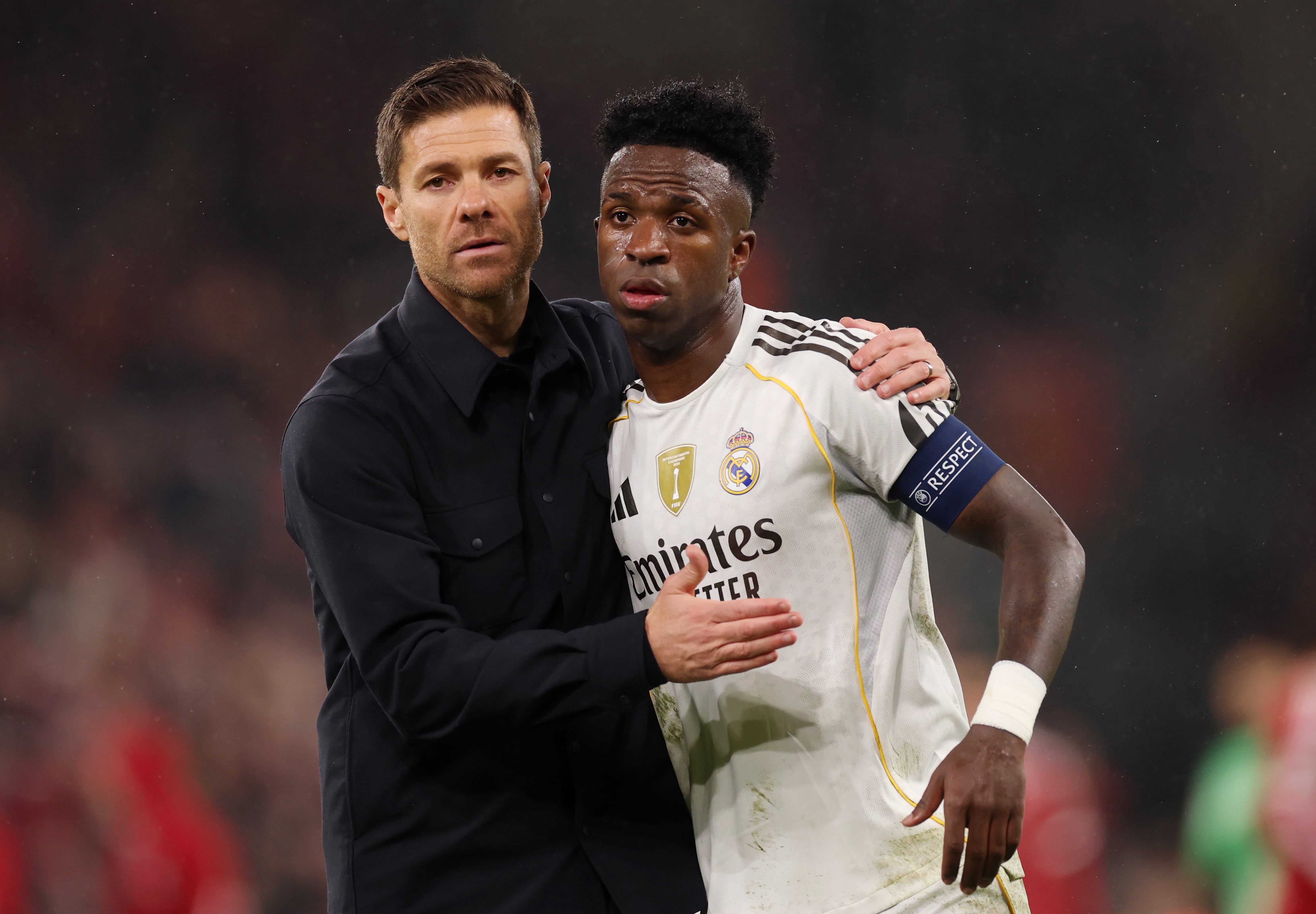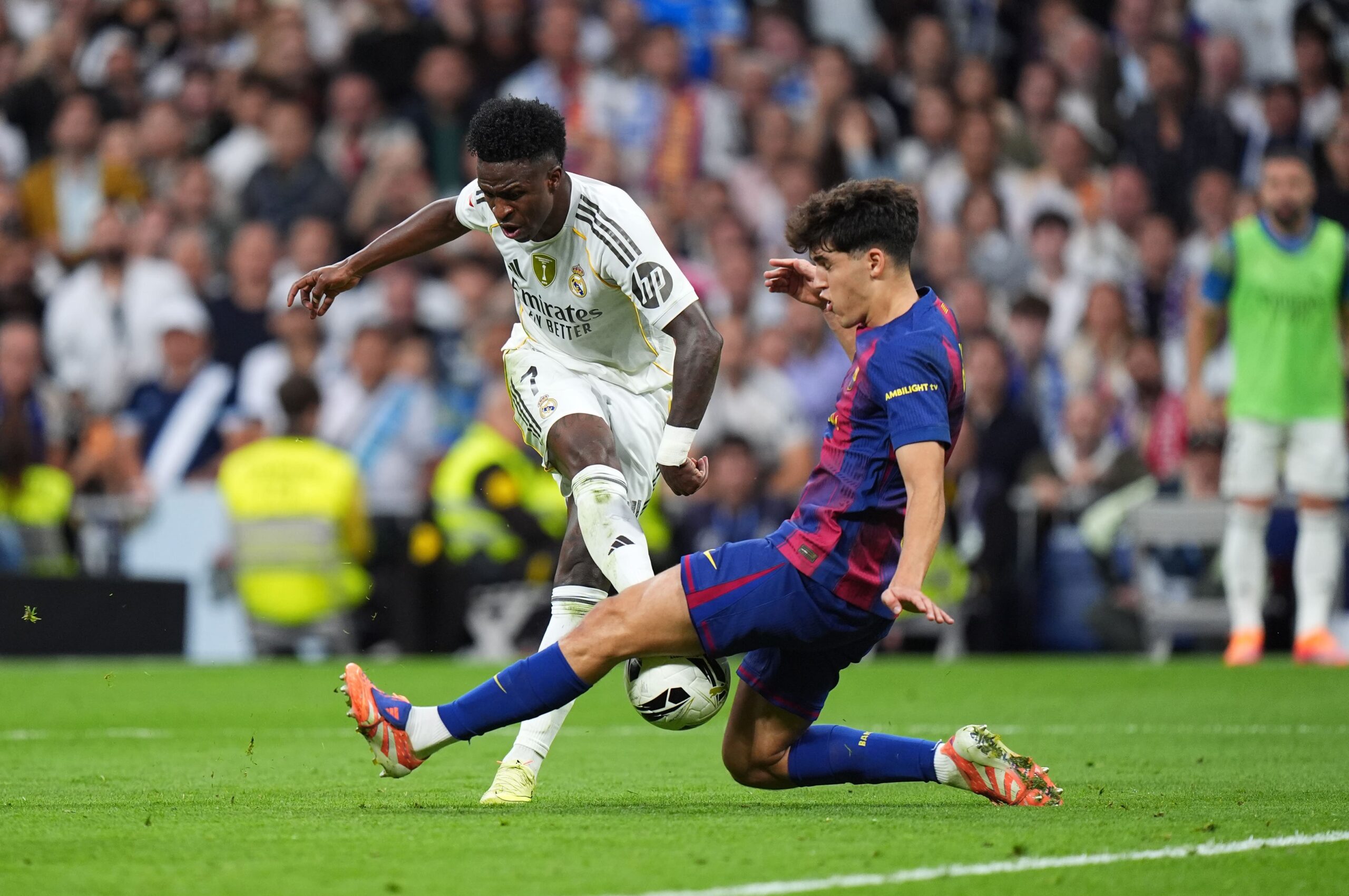Manchester City’s Pursuit of Vinicius Junior Signals a Power Shift in European Football, Dividing Fans and Experts Alike Over Clubs’ Morals and Ambitions
Real Madrid forward Vinicius Junior has increasingly become a focal point of speculation in European football, revealing the undercurrents of discontent at the Santiago Bernabeu. As tensions rise between Vinicius and manager Xabi Alonso, reports indicate that the Brazilian is at a crossroads, with Manchester City reportedly keen to make him their next star signing. The backdrop to this situation is rich in historical context, reflecting broader themes of loyalty, ambition, and the often tumultuous nature of player-club relationships.
Vinicius Junior’s skills on the field have long been recognized; he has established himself as a crucial component of Real Madrid’s attacking force. His speed, dribbling, and ability to score goals have drawn comparisons with the greatest talents in football. However, this season has brought to light the complexities that exist off the pitch. The reported rift between him and Alonso raises eyebrows not only for its implications for his future but also for the perceived saintliness of an institution like Real Madrid. The club prides itself on its legacy, yet the idea that a player of Vinicius’ caliber could be seen as a liability shows a shift from the traditional narrative of heroism associated with footballers in such a storied club.
The discontent at Real Madrid is not merely an isolated incident; it represents a convergence of internal and external pressures. Florentino Perez, the club president, now appears to believe that Vinicius’ behavior has become a problem. This perception could be fueled by leaked information from the dressing room, potentially destabilizing the team’s cohesion. When star players find themselves at odds with management, the ramifications can extend beyond the individual player to affect the entire squad’s performance, morale, and ultimately their success.
Manchester City’s interest in Vinicius Junior has sparked a debate that transcends the confines of football. Under the ownership of the Abu Dhabi United Group, Manchester City has transformed from a mid-tier club into a European powerhouse, often criticized for its financial clout. The prospect of acquiring Vinicius aligns with City’s strategy of bringing in young, dynamic players to not only dominate the Premier League but also to challenge for European accolades. The request made to Vinicius not to sign a new contract at Real Madrid hints at a calculated strategy designed to weaken Real Madrid’s negotiating position. Such tactics are not new in football but have heightened ethical concerns that are often debated among fans and pundits alike.
Moreover, Vinicius’ contract situation adds another layer of intrigue to this saga. Having reportedly been close to agreeing on a new deal earlier in the year, the sudden shift in negotiations underscores the fluidity of modern football contracts. When agents become involved in salary discussions, seeking parity with the likes of Kylian Mbappe, it reflects not just the market rate for talent but also highlights the broader financial dynamics within the sport. Real Madrid’s hesitance to meet such demands could indicate a shift in strategy amid changing economic landscapes within football.
The context of the football market today operates like a chess game, with each move analyzed for its potential risk and reward. Vinicius, out of contract in 2027, represents both a potential marquee signing for City and a challenge for Real Madrid to retain their stars amidst growing competition. As clubs become more aggressive in their pursuit of top talents, the question of loyalty is put into perspective. Historically, players were often celebrated for their commitment to a single club. Nowadays, the transient nature of player careers and the financial incentives offered by rival clubs create an environment where loyalty is increasingly tested.
As the whispers of Vinicius potentially leaving for City grow louder, they resonate with ongoing discussions about the future of football itself. The sport is at a turning point, where concerns about commercialism, player power, and club loyalty are at the forefront. The ramifications of this transfer saga will likely impact more than just Manchester City and Real Madrid; they may shape future negotiations across the football landscape. Clubs must grapple with their strategies, balancing the pursuit of success with the need to maintain a sense of community and loyalty that has historically defined them.
In this pivotal moment, fans and analysts alike are left contemplating what a successful transfer might reveal about the future of football. Will Vinicius Junior’s potential move signal a broader acceptance of football as a business first and foremost? Or will it provoke a counter-movement that champions the values of loyalty and tradition in a rapidly evolving sport? As the drama unfolds, it not only captures the imagination of supporters but reignites discussions about the ethics of football in the 21st century, leaving many to ponder what the beautiful game will look like in the years to come.

Real Madrid forward Vinicius Junior is perhaps the largest source of uncertainty at the Santiago Bernabeu this season, with his relationship with manager Xabi Alonso on the rocks already. Now teams are beginning to position themselves for the Brazilian.
Earlier this week it emerged that Real Madrid President Florentino Perez had reportedly taken the decision to sell Vinicius next summer, feeling that some of his behaviour with Alonso had crossed the line. Beyond that, some of the leaks emerging from the Real Madrid dressing room are attributed to Vinicius.
Manchester City position themselves for Vinicius move

Image via Carl Recine/Getty Images
According to transfer insider Indykaila, Manchester City have now made their interest known to Vinicius. The same source reported this week that Vinicius was unhappy not just with Alonso personally, but also with his attacking approach, feeling it was not conducive to attacking football.
Now City have supposedly asked him not to sign a new contract at Real Madrid before next summer, allowing them a better negotiating position for a potential deal. Vinicius is out of contract in 2027, and next summer the threat of losing him for free will work against Los Blancos.
Exclusive 💣@ManCity have asked Vinícius Júnior NOT ❌ to sign a new contract at @realmadrid.
Manchester City want Vinícius Júnior to become the next KDB for them.
The information has come from reliable source from Madrid. pic.twitter.com/XPsBBooDlZ
— indykaila News (@indykaila) November 5, 2025
Vinicius contract situation at Real Madrid
It was reported in the early stages of the year that Vinicius had agreed terms to a new deal with Real Madrid after interest from Saudi Arabia. Yet come the summer, that deal was put on ice, after Vinicius’ agents demanded that Vinicius earn the same as Kylian Mbappe at the top of their salary scale. Unwilling to do so, the two have put off further talks until next summer, which is certainly an unusual turn for Los Blancos to take, given the amount of time on his deal. Either way, an exit for Vinicius looks more and more feasible as time goes on.

